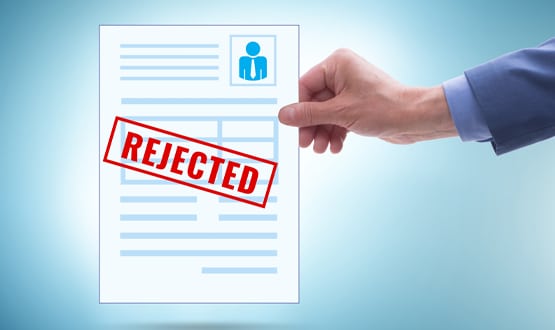Joe’s view of the NHS Number
- 8 May 2013

Right, that’s it. I have had enough. The first time was bad enough, but now it’s happened again. The first time was 16 years ago, and then I was promised it wouldn’t happen again.
The first time? Well, my wife, Fiona, was heavily pregnant with our third child and our two bedroom house just wasn’t going to be big enough, so I was suddenly in need of a new mortgage.
As a busy young doctor, and early adopter of technology, I decided the whole business could be done over the new-fangled telephone banking services that were springing up all over the place.
The spread of these services coincided with the Thatcher-driven privatisation of nationalised industries, the demutualisation of the building societies, and their subsequent acquisition by the banks in the mad capitalist arms race that sees us where we are now.
Even so, my first attempt to get a mortgage on the phone went like this:
“I’d like a mortgage please.”
“Can I have your name, address and date of birth?”
I gave them.
“I’m sorry but we won’t be able to offer you a mortgage.”
“Why not?”
“I’m afraid your credit rating is unsuitable?”
“But I’m an NHS doctor, in full time employment, I have never, ever had a bad debt.”
“Sorry, can’t help you.”
This scenario played out several times with different banks. Eventually, exasperated, I pleaded with a nice sounding Scottish lady.
I told her about her my urgent need to move house, the baby on the way, my work with abused children. Eventually she agreed to do what the others had refused to do; tell me the reason I couldn’t get any credit.
“You’re dead.”
“Pardon.”
“I’m afraid that according to our records, you’re dead.”
I fell into a stunned silence.
“Are you alright, Sir?” said the lovely Scottish voice.
“Yes, er yes, well… surprisingly well, in the circumstances.”
Living hell
I was one of the living dead, a zombie years before it became fashionable. Interestingly, as one of the undead all my direct debits continued to go out of my bank.
My bank also seemed happy enough to accept my salary every month; but even my bank’s own telephone banking set-up wouldn’t lend me money.
Eventually, I was undeaded by visiting my high street bank with my passport, birth certificate, two recent utility bills, a payslip, and my face.
Turns out the bank had acquired a recently demutualised building society and during the merger my identity was confused with that of a dead Joe McDonald, with whom I shared a birthday.
It took three months to sort out, which meant that the night before our Jake was born I was up all night decorating the new house.
Dead again
Couldn’t happen nowadays? Happened again last month. One of the kids lost his iphone and, pending on my relenting on the “well-there’s-no-way -we’re- paying –for- another-iphone-if -you -can’t -look –after- your -stuff” rant, I decided to give him another phone.
Namely, I decided to give him a cracked screen nokia2010 – the equivalent of the dreaded reserve car on the top gear specials – with a cheap SIM-only deal. I went on line to buy the SIM card. Declined because of poor credit rating.
Ok. So, I pay 30 quid to check my credit rating on Experian (a credit rating agency) and find I have an excellent rating.
Ok. Pay another 30 quid to check Fiona’s rating, and find she also has an excellent rating. Much head scratching.
Phone Virgin Mobile to ask which credit reference agency it uses. It doesn’t use Experian, it uses Equifax.
Pay 30 quid to check ratings with Equifax. On inspecting the record, it becomes clear that my identity has again been confused with that of someone else.
This time, by way of a change, it is not someone dead but someone who hasn’t been meeting the payments on their credit cards.
Turns out, unusually, I have acquired the credit rating of someone with whom I share a postcode and a house number.
I now know who and where they live and that they bought clothes from the Next catalogue which they failed to pay for.
Sorting this one out proves even harder than coming back from the dead. Equifax are an American company with no phone numbers and they don’t respond to email.
Eventually my credit rating improves after I email firstname.secondname@Equifax.com having got the name of someone very senior from their website.
One number to find them
What’s this got to do with e-health? Well, I’ve now had – twice – the banking equivalent of someone else’s operation; something that sadly happens in every health service in the world with alarming regularity.
The Joneses of Cardiff and the McDonalds of Glasgow run a particular risk getting other peoples’ medical records or care.
Long shot? Million to one? Well, the NHS sees a million patients every day, so every day, somewhere in the NHS, a million to one shot happens.
Times of merger, reorganisation and data migration are particularly risky. I know a small number of people are paranoid about the idea of a national identity scheme, but in my experience the private sector cannot be trusted to manage my identity.
I want a unique identifier to protect me and others with common names. I want an identity card and identity management system run by my democratically elected government, not by a for profit company based in another country.
Maybe my NHS Number could be at the heart of that system? Superstars, those with incredibly sensitive records, and the frankly paranoid can all be excused being on the system.
But I just want a sensible way to manage my identity that doesn’t involve holding 70 usernames and passwords in my iphone or getting my leg cut off by mistake.
In the mean time, if you have to go to hospital and if your name is Smith, Jones, Patel or Mohammed, be afraid, be very afraid.
NHS Number? Yes please. VOLUNTARY National Identity Scheme? Yes please. Compulsory National Identity Scheme, not on your nelly – too difficult and fails to respect the rights of an important, committed, intelligent and vocal minority.


Joe McDonald
Joe McDonald is a practising NHS consultant psychiatrist. Over the past five years he has been an NHS trust medical director and national clinical lead for IT at NHS Connecting for Health – a stint that included 18 months as medical director of the Lorenzo delivery team!
His experiences in the National Programme for IT in the NHS have left him with a passion for usability and "end user knowledge networks.” He is the founding chairman of the National Mental Health Informatics Network. Motto: we don’t get fooled again. Follow him on twitter @CompareSoftware




